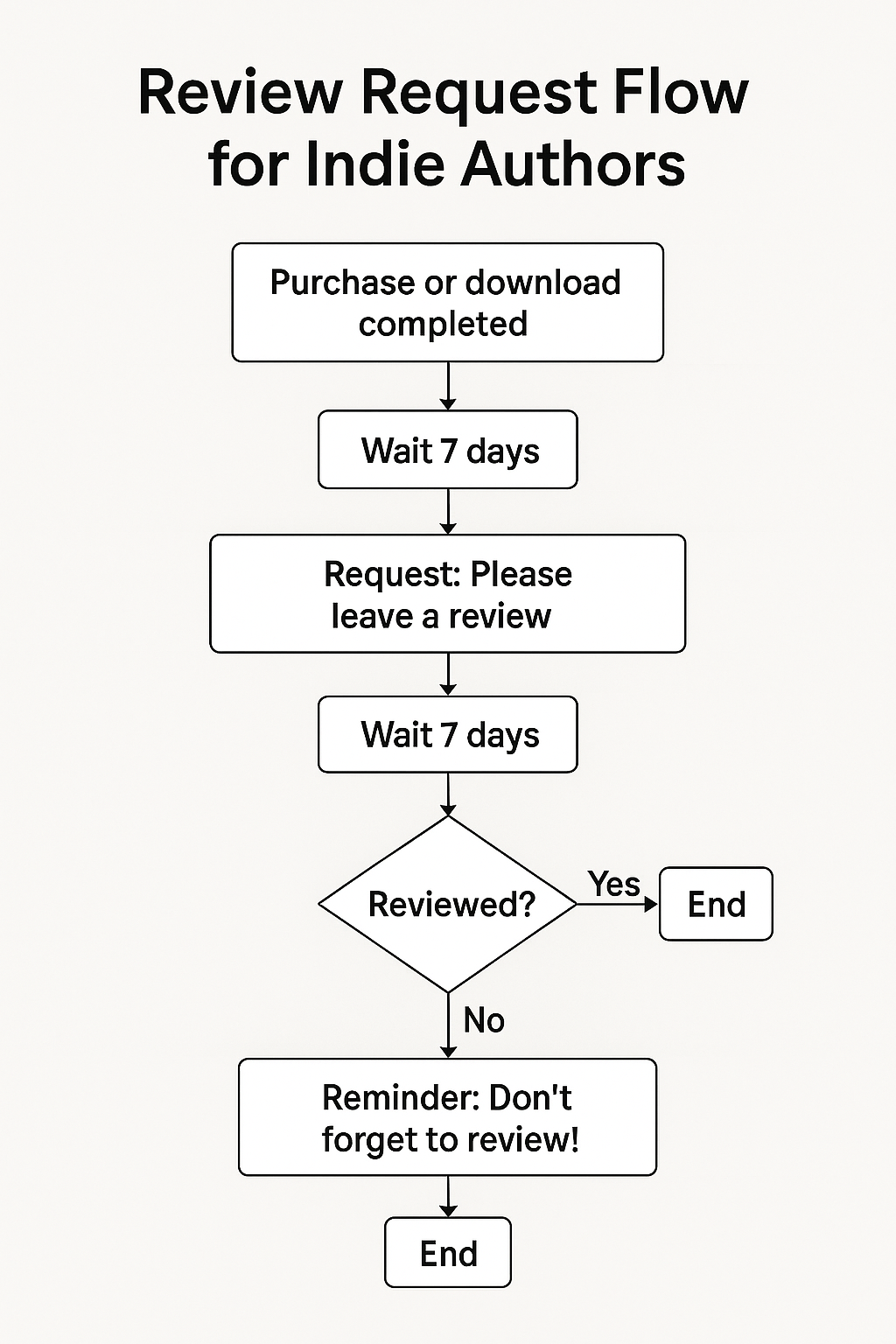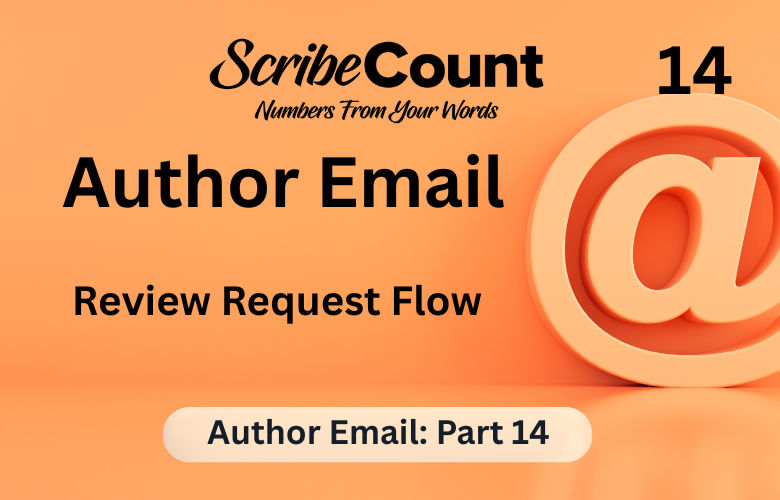Review Request Flow for Indie Authors: Turning (Non-ARC) Readers into Advocates
For indie authors, reviews are more than feedback—they're fuel. Reviews drive discoverability, influence purchase decisions, and provide essential social proof across all major platforms. But even satisfied readers often need a nudge to take the time to leave one. That’s where a smart, respectful Review Request Flow comes in.
This email sequence is designed to follow up after a reader has finished a book, guiding them toward leaving a review while deepening their relationship with your author brand. It’s one of the most effective (and overlooked) ways to increase the volume and quality of reviews on Amazon, Goodreads, BookBub, and other storefronts.
In this article, you’ll learn how to structure your Review Request Flow, when to send it, what to say, and how to keep your requests reader-friendly, compliant, and effective. We'll cover platform links, tagging and segmentation, and tools for automation—all while keeping your tone conversational and your reputation professional.
Why Review Requests Matter
Every book page on Amazon starts with a number. It might say "12,433 ratings" or "Only 2 reviews." That number carries disproportionate weight in the reader's decision-making process. Most readers don’t read reviews—they read how many there are.
The more reviews your book has, the more likely it is to:
- Appear in category rankings
- Qualify for Amazon and BookBub promotions
- Increase conversion rates
- Earn retailer algorithm support
And yet, most readers don’t leave reviews unless prompted. A Review Request Flow solves that.
When to Send Review Requests
Timing is everything. If you ask too soon, readers may not be ready. Too late, and they’ve moved on.
A proven approach looks like this:
- Day 5–7 after download or purchase: Assume they’ve had a chance to read (especially shorter books).
- Day 10–14: Send a reminder to those who clicked but didn’t submit.
Use tags to monitor buyer behavior and exclude readers who’ve already left a review (via clicks or review magnet links).
Anatomy of a Review Request Flow
The goal is to make reviewing feel easy, optional, and rewarding—not transactional or pressured. Here’s a breakdown of a gentle, effective sequence.
Email 1: Soft Request
Subject: "What did you think of [Book Title]?"
Thank the reader for reading. Then politely ask:
- If they enjoyed it, would they consider leaving a review?
- Mention how reviews help you as an indie author
- Include one-click links to review on Amazon, Goodreads, BookBub, or your preferred platform
Optional: Offer a bonus scene or reader magnet as a thank-you.
Email 2: Reminder + Social Proof (Optional)
Subject: "Your voice matters—join these readers!"
This email is sent only to non-clickers from Email 1. Share a few review quotes or ratings that have come in. This creates social proof and encourages readers to join the crowd.
Keep the tone warm and appreciative. Restate your ask, and thank them even if they’ve already left a review.

Best Practices for Review Requests
- Stay compliant: Never offer payment or gifts for reviews. You may thank readers with a general bonus, but don’t make it conditional.
- Use clear links: Make it frictionless. One-click review URLs make a big difference.
- Be human: Readers respond to sincerity more than scripts. Keep it personal, friendly, and appreciative.
- Segment smartly: Use tags to separate buyers, downloaders, ARC readers, and serial fans. Adjust the flow based on their level of connection.
Tools to Automate Review Requests
These tools integrate tagging, automation, and timed sends:
For direct sales follow-ups:
- BookFunnel (review delivery pages)
- Payhip
- Shopify
Mistakes to Avoid
- Coming across as desperate: Readers should never feel guilted into reviewing.
- Sending the same message twice: Vary the tone and content.
- No tracking: Use links that help you segment who has reviewed.
- Ignoring negative feedback: If a reader replies with criticism, thank them. Do not argue.
After the Flow: Looping Reviewers Into Your Brand
Once someone leaves a review, they’ve done more than just buy—they’ve advocated. Treat that with care.
Consider:
- Adding them to a VIP or ARC interest list
- Sending a thank-you email (automated or personal)
- Offering early access to your next release
This deepens trust and increases the odds they’ll do it again next time.
Final Thoughts: A Gentle Nudge, a Lasting Impact
Expansion Opportunities
· Adjust timing based on average book length or genre pacing.
· Customize review platform links to suit reader preferences (e.g., BookBub for romance, Goodreads for literary).
· Consider genre-specific review magnets—like companion novellas or world maps for fantasy readers.
· Introduce thank-you messages that invite readers into VIP segments or early-access groups.
The Review Request Flow is not about numbers—it’s about people. When handled well, this flow reminds readers that their voice matters, and that authors value their time.
Even a few added reviews can drastically improve your book’s trajectory. This isn’t about begging—it’s about building a culture of participation.
Respect their inbox. Make it easy. Say thank you. Then let your readers surprise you.
The Review Request Flow is not about numbers—it’s about people. When handled well, this flow reminds readers that their voice matters, and that authors value their time.
Even a few added reviews can drastically improve your book’s trajectory. This isn’t about begging—it’s about building a culture of participation.
Respect their inbox. Make it easy. Say thank you. Then let your readers surprise you.

